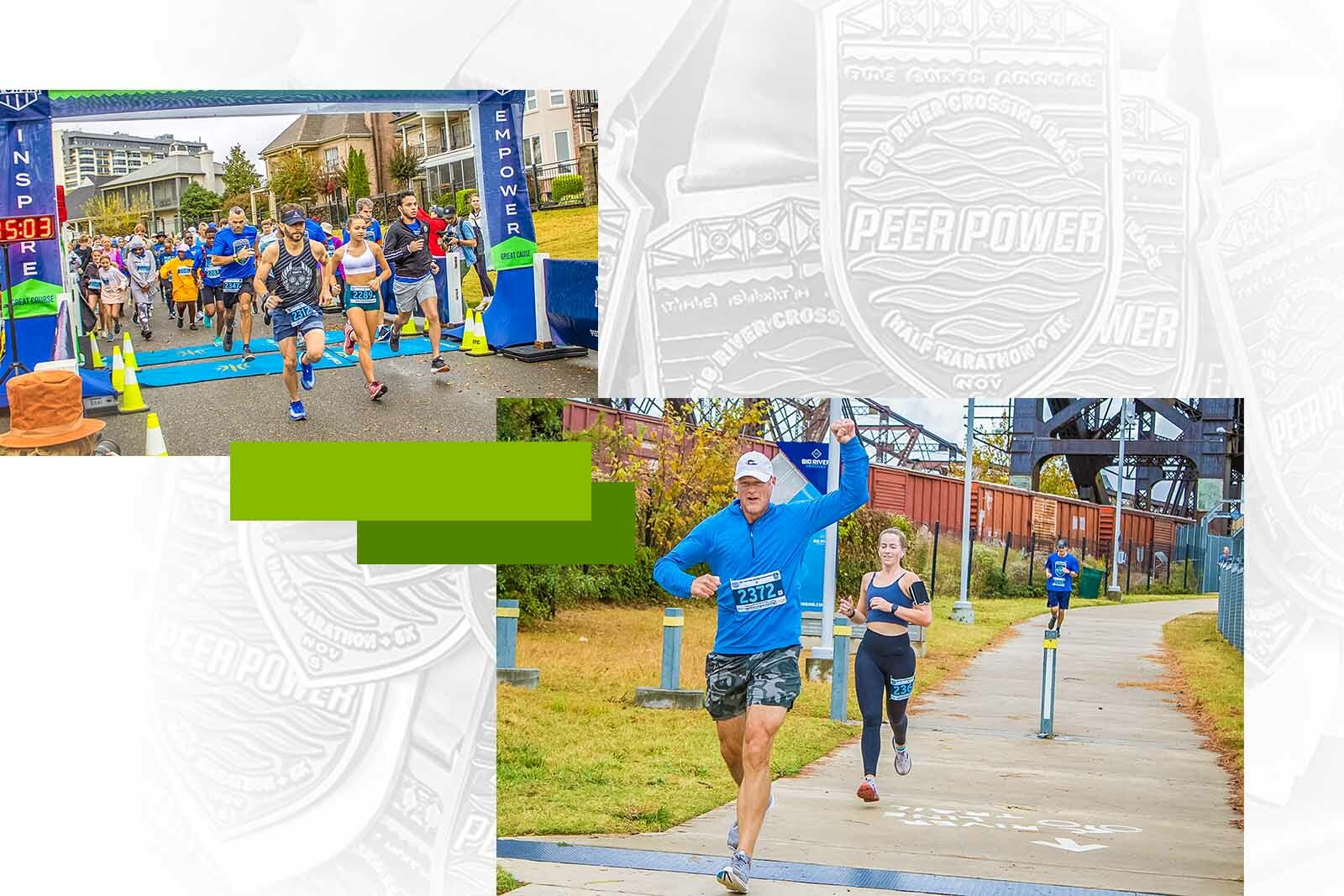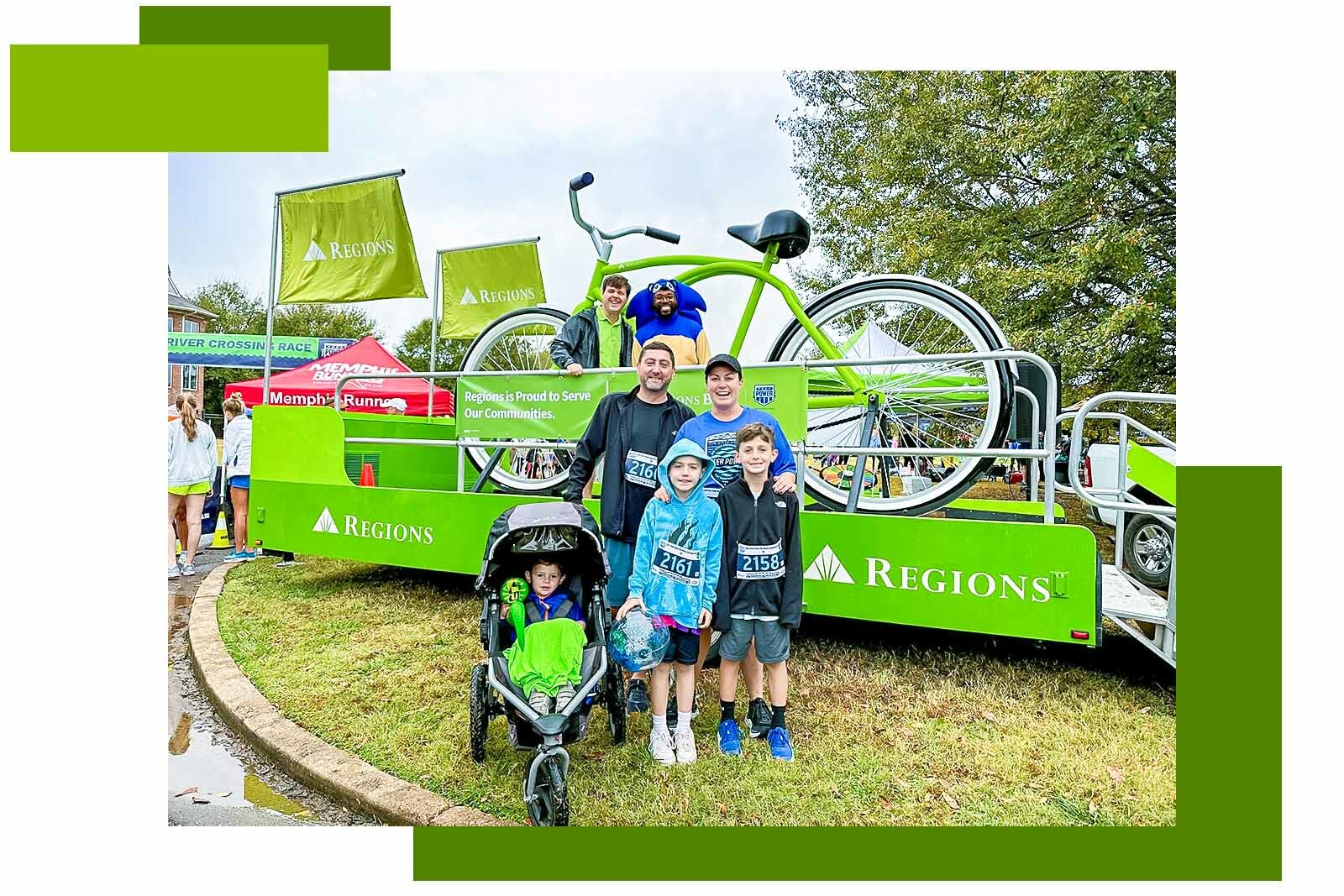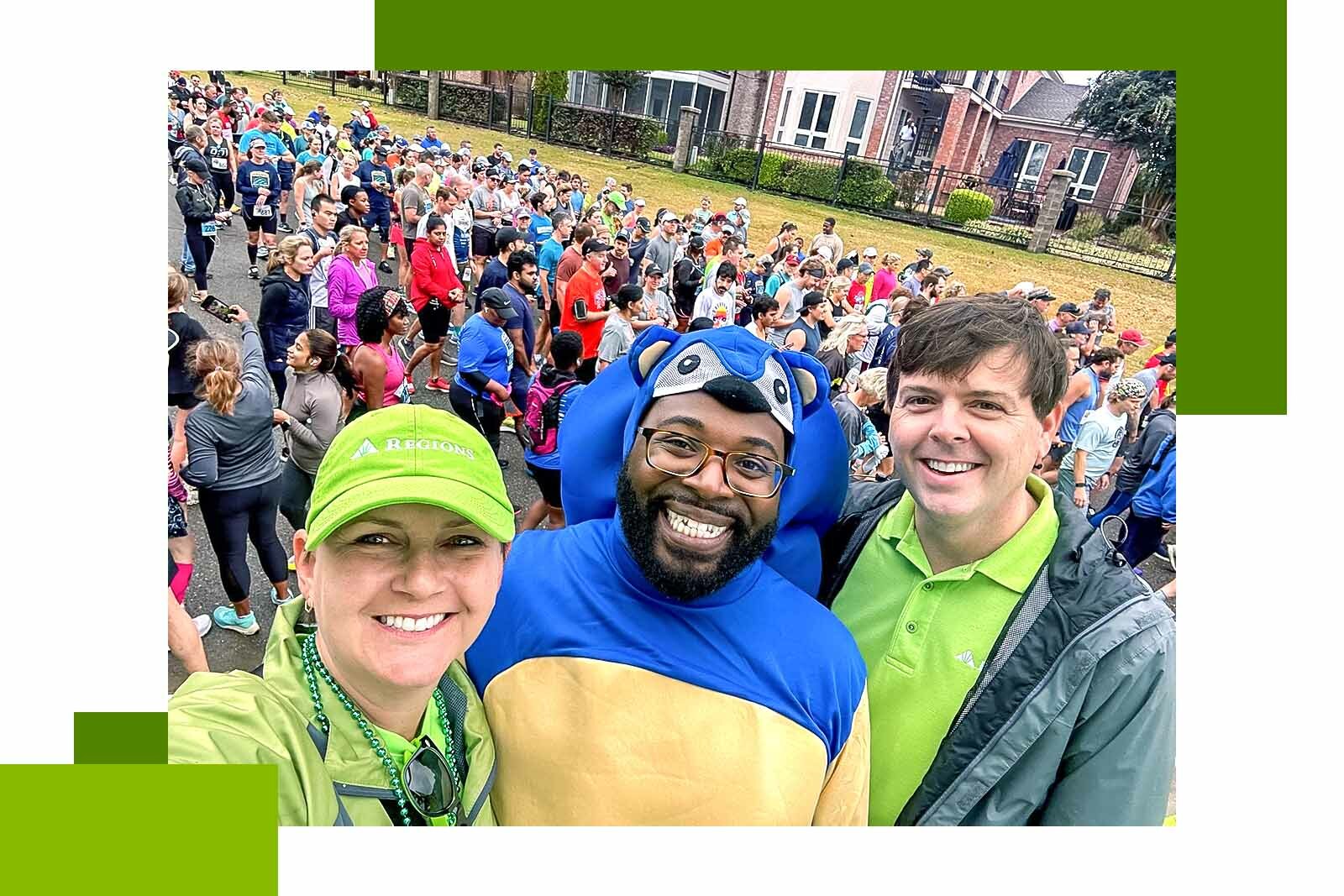“We could find my successor tomorrow, and the future depends on it.”
It’s not something you’d expect to hear from an executive just three weeks on the job.
But Cortney Richardson is different. The same could be said about the Memphis nonprofit he leads, Peer Power Foundation. The in-school tutoring program helps high school students thrive through personalized instruction. But it also goes a step further. Peer Power actually hires high-performing students to lead it into the future.
“I was 16 when I started tutoring and mentoring with Peer Power,” said Richardson. “I grew up with this program; I learned who I was from it. I learned what the building blocks of life should be, and that’s giving back. I also learned there’s more to life than where I was born.”
Bill Sehnert, Peer Power’s co-founder and executive director, immediately spotted Richardson’s potential 17 years ago.
“Cortney was referred to us by the principal as a sophomore, but I always tell him, ‘You were born an old soul,” said Sehnert. “Cortney is filled with curiosity, capacity and leadership. He has a lot of empathy, and he sees the world through the people he wants to help.”
Regions Bank started supporting Peer Power in 2017. In 2022, that support expanded to sponsoring the Big River Crossing Half Marathon and 5K, a fundraiser benefiting Peer Power.
 Thousands of runners took to the pavement to support race beneficiary Peer Power Foundation. The nonprofit provides classroom tutoring and mentoring support for students in 14 Memphis public schools.
Thousands of runners took to the pavement to support race beneficiary Peer Power Foundation. The nonprofit provides classroom tutoring and mentoring support for students in 14 Memphis public schools.
“Peer Power enlists a unique approach by tutoring students during the school day rather than after school or on weekends,” said David May, who leads Commercial Banking for Regions’ Mid-America territory and serves as market executive for Memphis. “Their approach removes a potential barrier to learning by meeting students where they are, increasing their likelihood of academic success. We see the results, and that’s why Regions associates from several departments have joined in supporting Peer Power’s work.”
Peer Power tutors also understand the impact of their work. The mission draws them in and often keeps them there for years. Like Richardson, Malcolm Rawls began as a tutor 18 years ago and ascended to a variety of leadership roles before becoming the nonprofit’s chief operations officer. Peer Power has also hired nearly 100 former program participants to work with today’s students as success coaches.
“We call them success coaches because it’s a role that combines tutoring and mentoring,” Richardson explained.
Sehnert believes the nonprofit’s model works for one key reason.
“I’ve had success coaches say, ‘I sat in that chair, this is what Peer Power did for me, and this is what I’m doing now,’” Sehnert said. “I can train someone in math, but I have to model integrity. That’s what Peer Power does, it shows kids how to be successful.”
The numbers are proving it.
Peer Power success coaches are doing more than earning their high school diplomas.
They’re graduating at an 84% rate from college. And the organization’s ACT Prep University is ensuring students are prepared for that next level of education from the outset by helping them raise their American College Test (ACT) scores an average of three-plus points.
Dr. Sara Benson, who leads learning initiatives for the nonprofit, is focused on moving the academic needle every day.
“Peer Power is one is one of the few organizations that you can see the effect you have in real time,” Benson said. “Education is a ticket. I learned that education was going to be my ticket to success. That’s a message I share with our students. I am a first-generation college graduate. A lot of our students grew up similar to me, and many will go on to be first-generation graduates as well.”
 Regions Mortgage team member Jennifer Michalski made race day a family day. The Regions Big Bike traveled to Memphis to provide giveaways and for photos.
Regions Mortgage team member Jennifer Michalski made race day a family day. The Regions Big Bike traveled to Memphis to provide giveaways and for photos.
Lives are changing at the 14 public schools where Peer Power operates. But if you think those transformational moments are only occurring inside the classroom, think again. The nonprofit is also encouraging participants to consider life’s possibilities beyond high school graduation.
“What makes Peer Power unique is the exposure it provides,” said Richardson. “We’re exposing participants to college students who have already conquered what they are experiencing, to role models who can say, ‘I’ve overcome what you’re going through and have succeeded.’”
And the program’s benefit is two-fold.
“We’re also providing economic mobility for college students who need to work while they’re in school,” said Richardson. “We’re offering them a meaningful job during college, a job where they tutor and mentor, where they can teach what they’ve already learned.”
Peer Power is also introducing participants to a world of new experiences and places that are sometimes right in their own backyard.
“When you start talking about students in the inner city, some of them only go to school and go home,” Richardson said. “Many don’t have exposure to beyond what they see on TV. We took students on a trip to see the Memphis Bridge and the Pyramid. Some had never gone downtown; they thought they were out of town.”
It’s not only the students who learn. Staff members do, too.
“Peer Power has taught me that hard work matters, that my work matters,” said Benson. “Working here has shown me that I can be a leader; I can be the person that other people look up to. Former students come up to me and say, ‘You inspired me.’ Not only are we impacting the kids, they’re impacting us.”
And Richardson’s takeaways as he reflects on his earliest days as a Peer Power tutor?
“I’ve learned that I don’t have to wait until I reach the biggest dream to impact the lives of others,” he said. “Oftentimes, we wait until we reach the peak to give back, but you don’t have to wait to do something great in your life. I’ve also learned that I’m at my best when I’m helping others.”
Peer Power’s future appears to be bright with Richardson – and his successor, whomever he or she may be – leading the way.
 Regions associates Kimberly Moore and Lance Cowles (left and right) capture a selfie with Peer Power Foundation CEO Cortney Richardson.
Regions associates Kimberly Moore and Lance Cowles (left and right) capture a selfie with Peer Power Foundation CEO Cortney Richardson.